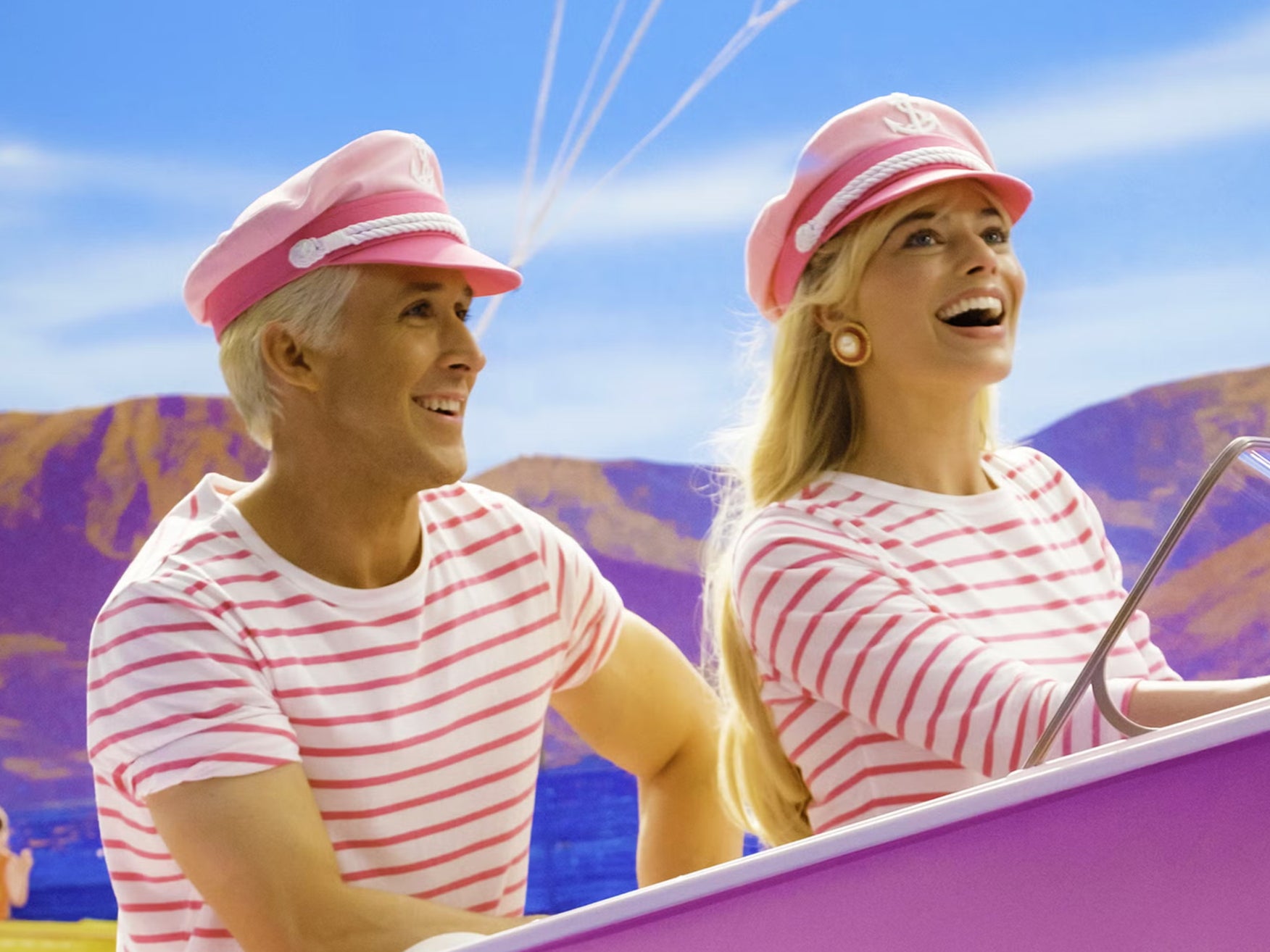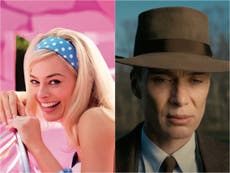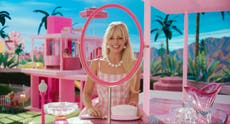Barbie review: A near-miraculous achievement from Greta Gerwig and Margot Robbie
While it’s impossible for any studio film to be truly subversive, this Mattel-approved comedy gets away with far more than you’d think was possible
Your support helps us to tell the story
From reproductive rights to climate change to Big Tech, The Independent is on the ground when the story is developing. Whether it's investigating the financials of Elon Musk's pro-Trump PAC or producing our latest documentary, 'The A Word', which shines a light on the American women fighting for reproductive rights, we know how important it is to parse out the facts from the messaging.
At such a critical moment in US history, we need reporters on the ground. Your donation allows us to keep sending journalists to speak to both sides of the story.
The Independent is trusted by Americans across the entire political spectrum. And unlike many other quality news outlets, we choose not to lock Americans out of our reporting and analysis with paywalls. We believe quality journalism should be available to everyone, paid for by those who can afford it.
Your support makes all the difference.Barbie is one of the most inventive, immaculately crafted and surprising mainstream films in recent memory – a testament to what can be achieved within even the deepest bowels of capitalism. It’s timely, too, arriving a week after the creative forces behind these stories began striking for their right to a living wage and the ability to work without the threat of being replaced by an AI. It’s a pink-splattered manifesto to the power of irreplaceable creative labour and imagination.
While it’s impossible for any studio film to be truly subversive, especially when consumer culture has caught on to the idea that self-awareness is good for business (there’s nothing that companies love more these days than to feel like they’re in on the joke), Barbie gets away with far more than you’d think was possible. It’s a project that writer-director Greta Gerwig, co-writer (plus real-life partner and frequent collaborator) Noah Baumbach, and producer-star Margot Robbie were free to work on in relative privacy, holed up during the pandemic away from the meddlesome impulses of Warner Bros and Mattel executives.
The results are appropriately free-wheeling: There are nods to Jacques Demy’s The Umbrellas of Cherbourg and Jacques Tati’s Playtime, deployment of soundstage sets and dance choreography à la Hollywood’s musical Golden Age, and a mischievous streak of corporate satire that calls to mind 2001’s cult classic Josie and the Pussycats. But while the absurdity of its humour sits somewhere between It’s a Mad, Mad, Mad, Mad World and Pee-wee’s Big Adventure, its earnest and vulnerable take on womanhood is pure Gerwig, serving as a direct continuation of her Lady Bird and Little Women.
The fact that all of this is tied to one of the most recognisable products in existence – and that any success it enjoys will undoubtedly boost Mattel’s stock prices – underlines the fact that it’s largely impossible to embrace art without embracing hypocrisy. Capitalism doesn’t always swallow art whole; occasionally it thrives in spite of it. And that’s a complexity that feels particularly on brand for a director who had her Jo March, in Little Women, declare: “I am so sick of people saying that love is just all a woman is fit for. I’m so sick of it! But – I am so lonely.”
Barbie contains another Gerwig-ian speech, delivered beautifully by an ordinary (human) mum played by America Ferrera, about the hellish trap women have been forced into. Caught between girl-boss feminism and outright misogyny, women now have to be rich, thin, liberated, and eternally grateful without ever breaking a sweat – because when Barbie promised little girls that “women can be anything”, those words got twisted to mean “women should be everything”. Gerwig’s movie begins by playing a brilliant trick on its audience: Helen Mirren’s opening narration is self-congratulatory, a bit of canned PR about Barbie’s “girl power” legacy that grows increasingly tongue-in-cheek. “Thanks to Barbie,” she concludes, “all problems of feminism and equal rights have been solved”.
We’re then introduced to our Barbie – ie “the Stereotypical Barbie” – who is chipper, confident, blonde, and, most importantly, looks like Margot Robbie. She is eternally adored by Ken (Ryan Gosling), whose job is “beach”. Not “lifeguard”, but “beach”. Barbie’s friends all have high-powered jobs: president (Issa Rae), author (Alexandra Shipp), physicist (Emma Mackey), doctor (Hari Nef), and lawyer (Sharon Rooney). Every morning, she steps into her shower (there’s no water), sets out her breakfast of a heart-shaped waffle with a dollop of whipped cream (she doesn’t eat), and then sets off in her pink convertible (she doesn’t walk downstairs, but merely floats). All is perfect. Then Barbie starts having irrepressible thoughts of death.
Barbie’s bid to fix that sudden, scary attack of humanity sees her visit “the Real World”, where she meets the all-male executive board of Mattel (among them Will Ferrell and a wonderfully dorky Jamie Demetriou), who think themselves qualified to determine what little girls like and need because they once had a woman CEO (or two, maybe). Meanwhile, Gerwig uses, through a hysterical farce centred around Gosling and his fellow Kens, the implicit matriarchy of Barbieland to explore how power and visibility shape a person’s self-perception. Gosling gives an all-timer of a comedic performance, one that’s part-baby, part-Zoolander, part-maniac, and 100 per cent a validation for anyone who ever liked him in 2016’s noir comedy The Nice Guys. There are (naturally) some exquisite outfits designed by Jacqueline Durran, some very funny references to discontinued Barbies (have fun reading up on the backstory behind Earring Magic Ken), and a few unexpected pops at fans of Duolingo, Top Gun, and Zack Snyder’s Justice League.

Barbie is joyous from minute to minute to minute. But it’s where the film ends up that really cements the near-miraculousness of Gerwig’s achievement. Very late in the movie, a conversation is had that neatly sums up one of the great illusions of capitalism – that creations exist independently from those that created them. It’s why films and television shows get turned into “content”, and why writers and actors end up exploited and demeaned. Barbie, in its own sly, silly way, gets to the very heart of why these current strikes are so necessary.
Dir: Greta Gerwig. Starring: Margot Robbie, Ryan Gosling, Simu Liu, America Ferrera, Kate McKinnon, Issa Rae, Rhea Perlman, Will Ferrell. 12A, 114 minutes.
‘Barbie’ is in cinemas from 21 July




Join our commenting forum
Join thought-provoking conversations, follow other Independent readers and see their replies
Comments